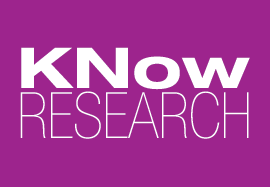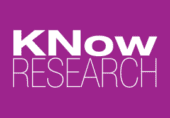Qualitative Research Agencies Can Drive Financial Empowerment
Through our work in the financial services industry, we at KNow Research advocate for financial literacy, with a particular focus on underserved populations and women. This is a focus not only in the work we do for our clients, but the work that we do as a team.
Advocating for financial literacy and empowerment aligns with my personal values — which is why I’ve fully embraced our internal financial literacy initiatives to learn as much as I can! Seven years ago, I was incredibly blessed to receive a full-ride scholarship to go to the UW-Madison through the amazing Chick Evans Scholarship. This scholarship completely changed the trajectory of my life. It meant I could afford to take an unpaid internship in college, knowing it would open so many doors for my qualitative research career. After graduation, instead of facing a mountain of student loan debt, I could invest in my future and contribute to my retirement fund in my early twenties. But I also know that having this level of financial freedom is a sadly rare privilege.
As a Strategist on the KNow Research team, I have the honor of amplifying the lived experiences, the joys, and the frustrations faced by consumers of credit card companies, banks, and financial media. I’ve realized I can help to even the playing field by leveraging the power of qualitative research.
4 Ways Research Can Support Financial Empowerment
1. Build Trust with Intentional Research Design
Talking about money isn’t easy for anyone. As researchers, we navigate a delicate balance: creating safe spaces for participants to share while staying aligned with our client’s strategy and objectives. We also recognize it’s tough for participants to divulge their personal financial matters with strangers they’ve just met!
So at KNow we’ve embraced a funneled, hybrid methodology for sensitive financial topics. This approach starts with a few days of private, online diary activities, allowing participants to reflect on their own terms. Once they’ve spent some independent time tackling subject at hand, we transition to interviews or group discussions.
This method works because it respects participants’ comfort zones while fostering openness. By the time synchronous sessions begin, participants are primed to share richer, more thoughtful insights. For financial research, a funnel-approach is a trust-building bridge that benefits researchers, clients, and participants alike.
Ensure your research design creates safe spaces for sensitive topics!
2. Empower Organizations Who Need It Most
Qualitative researchers can move the needle for underserved communities by partnering with organizations and small businesses dedicated to serving them. Qualitative insights can help these organizations can grow, expand their reach, and empower even more people financially. But unfortunately, these non-profits often lack resources to invest in deeply understanding their audiences’ unmet needs.
KNow Research bridges this resource-knowledge gap through our annual pro-bono program. This past year, our 2024 pro bono recipient was Prepare + Prosper, a Minnesota based organization providing free tax preparation and financial services to help working families move from ‘just getting by’ to ‘getting ahead.’ Prepare + Prosper needed to understand how to communicate the details and options pertaining a new state child tax credit to low-income families.
During fieldwork, I heard frustrations I’ve felt myself—the difficulty of keeping up with the ever-changing tax laws, trying (and failing) to decode confusing legalese, and the fear of making a mistake and facing the IRS. Because of this research, working Minnesotan families now have a better chance to claim a tax credit that brings financial stability for the year ahead.
Consider reaching out to a local non-profit and offering a donation, in the form of much-needed insights!
3. Incorporate Financial Generational Nuances
Money means different things to every generation. As researchers, we must tune into these unique perspectives to help brands create products and services that connect with each age group.While I consider myself a financial cheerleader for all generations, I have a soft spot for my fellow Gen Z. I’ve heard from peers and participants alike that money feels like a constant state of ‘survival mode’; we are acutely aware of its scarcity. We witnessed our parents navigate a devastating recession, entered the job market during a pandemic, and now face historic inflation and horrific wealth inequality in our country. It’s no surprise that we often lack the bandwidth to focus on long-term financial planning when we’re just trying to manage getting through today.
Be sure to listen for generational differences in financial research; consider pre-testing your guides and activities with member of different generations to ensure the tone and language connects with everyone and make adjustments when needed.
4. Support Your Team’s Financial Fitness
In recent years, Know has partnered with the Financial Gym, an organization dedicated to creating a supportive, non-judgmental space for achieving financial health, to provide 1-on-1 goal planning and Finance ‘101 & 102’ webinars. These initiatives have helped our team become ‘financially fit’ together!
Look for ways to encourage financial literacy and advocacy on a team level – and empowered team leads to empowered research!
Ready to make a difference?
Whether you’re looking to amplify your brand’s understanding of diverse financial needs or bridge the knowledge gap for underserved communities, KNow’s qualitative research expertise can help. Contact us, and let’s move the money needle together!

